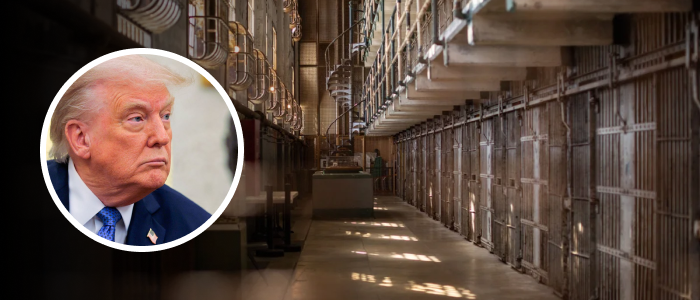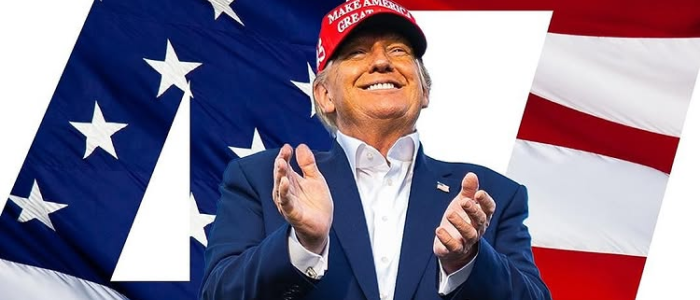AS we all know, the United States has recently announced a broad increase in tariffs on imports from numerous countries. This signals the return of aggressive trade protectionism – and possibly a new global tariff war. For an open, trade-reliant economy like Malaysia, the ripple effects could be serious.
It worries me deeply, and it should concern all of us. We must be ready to face tougher times. Tariffs are essentially taxes on imported goods.

When the US imposes them, costs go up – for exporters, manufacturers, and ultimately, consumers. For Malaysian exporters, this means reduced competitiveness, lower sales, and thinner margins. But the impact doesn’t stop there.
Global supply chains are tightly linked. Tariffs on one component can disrupt production across multiple countries. The result? Rising costs, shrinking trade volumes, and economic inefficiency that could slow global growth.
In this uncertain climate, businesses will hesitate to invest or expand. For small and medium enterprises (SMEs) in Malaysia that rely on export markets, this could lead to closure. Job losses will likely follow.
Higher unemployment and weaker consumer confidence will impact domestic spending, possibly pushing Malaysia toward a recession. As businesses struggle, the livelihoods of ordinary Malaysians are at stake. I am concerned that tariff wars aren’t just an economic issue – it’s geopolitical.
The US is using tariffs as a tool to influence other nations. But countries like China and those in the European Union are unlikely to stay silent. If tit-for-tat trade restrictions escalate, the global economy could be caught in a spiral.
We should be aware that geopolitics could overshadow diplomacy, making multilateral trade cooperation even more difficult. Smaller nations like Malaysia may get dragged into a conflict not of their making, with little room to manoeuvre. Strategic leverage Malaysia and Singapore’s Free Trade Zones (FTZs) can offer alternatives to businesses looking to bypass tariff-heavy routes.
Malaysia can attract companies looking to relocate or diversify operations, especially in manufacturing and logistics. Strategic collaboration with Singapore, leveraging their connectivity and our production capabilities, can strengthen South-East Asia’s position as a key trading hub. We must be ready to take advantage of these shifts.
Asean cooperation In response to US-centered disruptions, Malaysia should deepen Asean integration. The Regional Comprehensive Economic Partnership (RCEP) and Asean trade frameworks can help us grow within the region. Reducing trade barriers, streamlining customs, and harmonising standards can boost intra- Asean trade.
In sectors like halal goods, green tech, and digital services, Malaysia can lead – but we must act now. Comprehensive support While governments can’t control external trade policies, they can control how prepared the domestic economy is to absorb the shocks. Malaysia must also focus on three key areas: households, displaced workers, and business resilience.
1. Households: With the cost of living expected to rise, especially for imported goods, the government must enhance targeted subsidies and social safety nets to support low- and middle-income families. This may include targeted cash assistance.
2. Workers: Job losses may be unavoidable in affected sectors. Reskilling and upskilling through TVET and short-term training must be expanded so displaced workers can transition into new industries.
3. Businesses: Government support should focus not only on survival but transformation. Grants, tax incentives, and support for digital adoption and automation can help companies become more resilient.
The government should prepare the country psychologically and provide the necessary support – uncertainty takes a toll on mental health. This is also the time for our government to be ready to introduce laws or regulations that encourage and support businesses – particularly SMEs – to confront the real risk of a recession. These measures should be aimed at improving resilience, enabling transformation, and building long-term competitiveness.
Unity and mental preparedness In times of stress, it’s easy to assign blame or politicise hardship. But Malaysia will weather this storm best by working together – across political lines, industries, and communities. The truth is, the whole world is facing these challenges.
Even economic giants are scrambling to adjust to a new era of uncertainty and fragmentation. That in itself should be a source of comfort: Malaysia is not alone. But we must brace ourselves.
The ripple effects of a tariff war could touch every household – through rising prices, job insecurity, and tighter financial conditions. As concerned as I am about what lies ahead, I also believe that if we stay united, look after one another, and stay focused on long-term resilience, we will get through this – together. Let us prepare not just economically, but mentally and socially, for the possibility of tougher times.
With the right mindset, cooperation, and forward-thinking leadership, Malaysia can adapt and continue to thrive – even in a more troubled world. Senior lawyer Dato’ Sri Dr Jahaberdeen Mohamed Yunoos is the founder of Rapera, a movement that promotes compassion. The views expressed here are entirely his own.
.
Politics

A time for unity and mental preparedness

As US tariff hikes spark global trade tensions, Malaysia must brace for the economic ripples. Read full story















